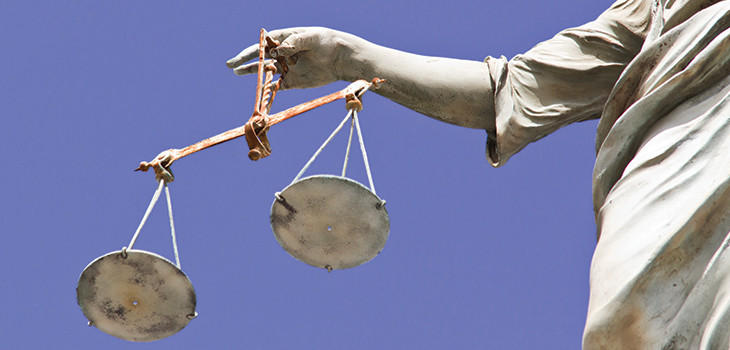*/

In December 2020 BAILII, the British and Irish Legal Information Institute celebrated its 20th anniversary. We are looking forward to continuing and enhancing our services. The announcements by the Ministry of Justice and The National Archives in June this year about a planned new service for ‘important’ judgments and ‘cases of legal significance’ from England and Wales have caused some confusion about BAILII’s ongoing role. This article outlines BAILII’s historic contribution to facilitating access to justice and our future plans.
BAILII has long played a key role in the international movement calling for free access to law as means to promote the rule of law and access to justice. For many years, we have campaigned for the need to improve access to judgment data and the information flow by which it reaches the public through more comprehensive, speedy and structured judgment data for the benefit of all users. BAILII loads new judgments within hours of receipt. Usage is anonymous, requires no log on or registration, and there are no cookies, trackers or analytics.
We will continue to play our part in ensuring that free legal information services are seen to be appropriately independent. BAILII will remain an independent charity and the largest free internet provider of primary legal materials in the United Kingdom. We take very seriously our role in helping people to understand and use the law. We are determined not only to ensure that public access to case law from jurisdictions throughout the UK and Ireland is maintained, but also to develop our service to help users, and their lawyers and advisers, to interpret content.
In addition to continuing to publish all our current range of materials, BAILII has been working on plans to add valuable additional content.
An important development is our evolving initiative to provide access to high-quality fully indexed legal commentary and academic analysis alongside and interlinked with primary materials. We look forward to discussions with blog authors, legal commentators, and academic writers to offer them an additional route to share their insights and reach wider audiences as this project develops.
BAILII is also updating and enhancing its OpenLaw service, liaising with academic specialists, to support legal education. The service identifies and links to judgments of leading cases by topic for law students. These judgments will include nutshell descriptions to assist in understanding at a glance the significance of the cases. An example is the updated list for torts. The project was originally funded by JISC, at the time the Joint Information Systems Committee of the Higher Education Funding Council, and continues with the assistance of the Institute of Advanced Legal Studies (IALS).
Part of our mandate is a commitment to support research in legal information. We sponsor an annual lecture by leading members of the judiciary and eminent academic lawyers, most recently Professor Richard Susskind. BAILII is also collaborating with an Oxford University research project team investigating the implications of AI for law. We expect that the findings of the research will assist MOJ/HMCTS and BAILII build robust data governance structures and inform future decisions on how data might be shared for AI applications and under what conditions.
The forthcoming creation of a government archive for data analysis and for future generations is a major step forward for England and Wales. It is one for which BAILII has long advocated and is actively supporting, while maintaining all of our own content and services.
Currently, judgments in England and Wales are distributed directly by judges to interested parties including publishers. The addition of a new publisher of judgments is always welcome but BAILII hopes that this new role for The National Archives will not reduce the range of recipients of this direct distribution, or adversely affect the speed or selection of cases made available for publication. This would compromise both independence and access to the law.
BAILII is grateful to all its stakeholders, including the Bar and the legal community more widely, for their continuing support for our free, easily accessible and independent service – and one we plan to enhance further still.


In December 2020 BAILII, the British and Irish Legal Information Institute celebrated its 20th anniversary. We are looking forward to continuing and enhancing our services. The announcements by the Ministry of Justice and The National Archives in June this year about a planned new service for ‘important’ judgments and ‘cases of legal significance’ from England and Wales have caused some confusion about BAILII’s ongoing role. This article outlines BAILII’s historic contribution to facilitating access to justice and our future plans.
BAILII has long played a key role in the international movement calling for free access to law as means to promote the rule of law and access to justice. For many years, we have campaigned for the need to improve access to judgment data and the information flow by which it reaches the public through more comprehensive, speedy and structured judgment data for the benefit of all users. BAILII loads new judgments within hours of receipt. Usage is anonymous, requires no log on or registration, and there are no cookies, trackers or analytics.
We will continue to play our part in ensuring that free legal information services are seen to be appropriately independent. BAILII will remain an independent charity and the largest free internet provider of primary legal materials in the United Kingdom. We take very seriously our role in helping people to understand and use the law. We are determined not only to ensure that public access to case law from jurisdictions throughout the UK and Ireland is maintained, but also to develop our service to help users, and their lawyers and advisers, to interpret content.
In addition to continuing to publish all our current range of materials, BAILII has been working on plans to add valuable additional content.
An important development is our evolving initiative to provide access to high-quality fully indexed legal commentary and academic analysis alongside and interlinked with primary materials. We look forward to discussions with blog authors, legal commentators, and academic writers to offer them an additional route to share their insights and reach wider audiences as this project develops.
BAILII is also updating and enhancing its OpenLaw service, liaising with academic specialists, to support legal education. The service identifies and links to judgments of leading cases by topic for law students. These judgments will include nutshell descriptions to assist in understanding at a glance the significance of the cases. An example is the updated list for torts. The project was originally funded by JISC, at the time the Joint Information Systems Committee of the Higher Education Funding Council, and continues with the assistance of the Institute of Advanced Legal Studies (IALS).
Part of our mandate is a commitment to support research in legal information. We sponsor an annual lecture by leading members of the judiciary and eminent academic lawyers, most recently Professor Richard Susskind. BAILII is also collaborating with an Oxford University research project team investigating the implications of AI for law. We expect that the findings of the research will assist MOJ/HMCTS and BAILII build robust data governance structures and inform future decisions on how data might be shared for AI applications and under what conditions.
The forthcoming creation of a government archive for data analysis and for future generations is a major step forward for England and Wales. It is one for which BAILII has long advocated and is actively supporting, while maintaining all of our own content and services.
Currently, judgments in England and Wales are distributed directly by judges to interested parties including publishers. The addition of a new publisher of judgments is always welcome but BAILII hopes that this new role for The National Archives will not reduce the range of recipients of this direct distribution, or adversely affect the speed or selection of cases made available for publication. This would compromise both independence and access to the law.
BAILII is grateful to all its stakeholders, including the Bar and the legal community more widely, for their continuing support for our free, easily accessible and independent service – and one we plan to enhance further still.



The Chair of the Bar sets out how the new government can restore the justice system
In the first of a new series, Louise Crush of Westgate Wealth considers the fundamental need for financial protection
Unlocking your aged debt to fund your tax in one easy step. By Philip N Bristow
Possibly, but many barristers are glad he did…
Mental health charity Mind BWW has received a £500 donation from drug, alcohol and DNA testing laboratory, AlphaBiolabs as part of its Giving Back campaign
The Institute of Neurotechnology & Law is thrilled to announce its inaugural essay competition
How to navigate open source evidence in an era of deepfakes. By Professor Yvonne McDermott Rees and Professor Alexa Koenig
Brie Stevens-Hoare KC and Lyndsey de Mestre KC take a look at the difficulties women encounter during the menopause, and offer some practical tips for individuals and chambers to make things easier
Sir Geoffrey Vos, Master of the Rolls and Head of Civil Justice since January 2021, is well known for his passion for access to justice and all things digital. Perhaps less widely known is the driven personality and wanderlust that lies behind this, as Anthony Inglese CB discovers
The Chair of the Bar sets out how the new government can restore the justice system
No-one should have to live in sub-standard accommodation, says Antony Hodari Solicitors. We are tackling the problem of bad housing with a two-pronged approach and act on behalf of tenants in both the civil and criminal courts